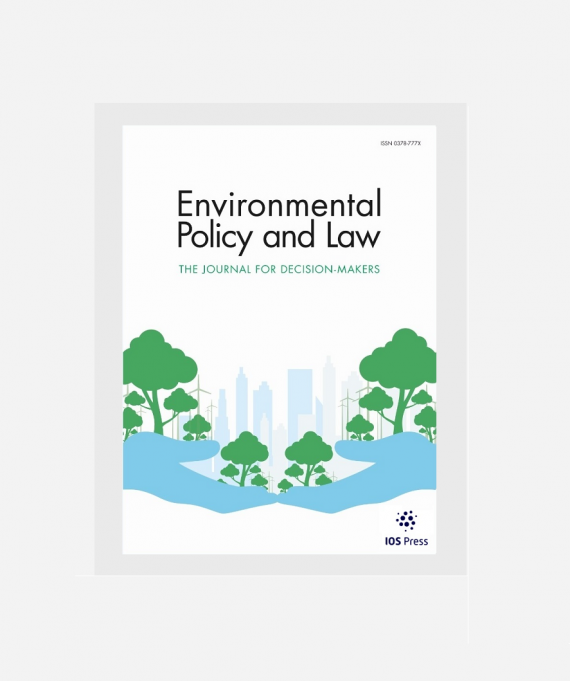
[Author: Carmel McNamara, IOS Press]
Amsterdam, NL – We are pleased to announce that the latest issue of Environmental Policy and Law (EPL) has been published online. This issue includes seven research articles covering law and policy from a global and national perspective, broadly covering sectoral resource issues such as biodiversity, forestry and water. The opening section touches upon legislation for protecting indigenous cultural and intellectual property and, here, one investigation into the sustainable use of forest and land is highlighted.

We invite you to read this extract of the forest resource article by Hananto, et al. (from the Faculty of Law, Diponegoro University, Indonesia). “In its status as a natural resource, the issue of land use raises various complex legal and environmental issues, especially when there is a change in the function of forest areas for plantation and mining activities. The characteristic of the forest, which is a very valuable resource, causes access to use and control of forest resources which often creates problems.” The article compares the global approach to sustainable forestry practices with those of Indonesia, where the structure of control of natural resources is dominated by big businesses with capital power. “They can control forest, land, and mining areas up to millions of hectares. On the other hand, local people have lived relying on these land resources for generations. This unfair distribution of control of natural resources is seen as the basis for real social conflicts.” The paper goes on to cover Indonesia’s rent soil theory – a policy that aims to increase state revenue through the imposition of rent for forest land along with natural resources (wood, lumber, stable soil, etc.). Read the full paper here.
New issue: EPL Volume 51, Issue 5
This new issue sees content published in a number of key sections of the journal, under the headings:
- Global Law and Policy
- National Law and Policy
In total, there are seven research articles. The focus broadly covers various approaches at work concerning sectoral resource issues such as biodiversity, forestry and water. The issue opens with the global developments section which includes three papers covering access and benefit sharing under the biological diversity regime, sustainable development goals and geographical indicators. Each of these papers touch upon protecting indigenous cultural and intellectual property. “They examine several inter-connected issues of clearance of forests, mapping of traditional knowledge, and valuing uniquely grown and produced items that carry distinct geographical indication,” explains EPL’s Editor-in-Chief Bharat H. Desai, PhD explains about these articles in the issue’s editorial. “Through different approaches, these have come to be inscribed with legal fabric that aspire to address the interests of the local communities. Still, the issues of equity, distribution, authenticity and community participation haunt the respective processes of policy, law and institutional mechanisms. They reflect lessons from the working of some strands of the global common concerns and respective global regulatory mosaic in the said areas.”
Of the remaining four articles that appear in the national developments section, there is one openly available paper that highlights legal issues of rights to clean water during the COVID-19 pandemic in Indonesia. There is also a paper that looks at the policy–law interface of the forestry sector in Nigeria and a study calling for the integration of environmental protection requirements into the sectoral legal system in Vietnam. The final article focuses on risks of contamination by active pharmaceutical ingredients in Malaysian tap water. The study seeks to enhance the efficiency of current Malaysian legislative framework with the hope that it could achieve the quality of clean water that meets health-based targets.

